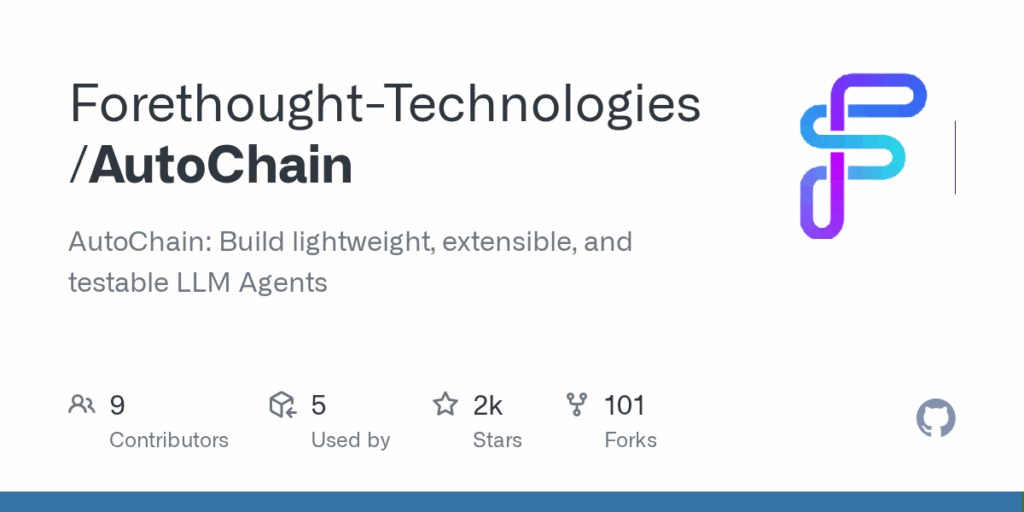AutoChain
Basic Information
AutoChain is a developer-focused framework for building, customizing, and evaluating generative agents powered by large language models. It provides a lightweight pipeline that reduces abstraction compared to some alternative frameworks and is inspired by LangChain and AutoGPT. The repository is intended to help developers create conversational agents that can call custom tools, maintain simple memory of conversations and tool outputs, and use OpenAI-style function calling without extra boilerplate. AutoChain also includes a workflow evaluation framework that runs simulated multi-turn conversations between agents and LLM-generated test users so developers can automatically test agent behavior across scenarios. The project includes examples, components overview, and scripts to run interactive or batch evaluations to accelerate iteration on prompts, tools, and agent logic.








